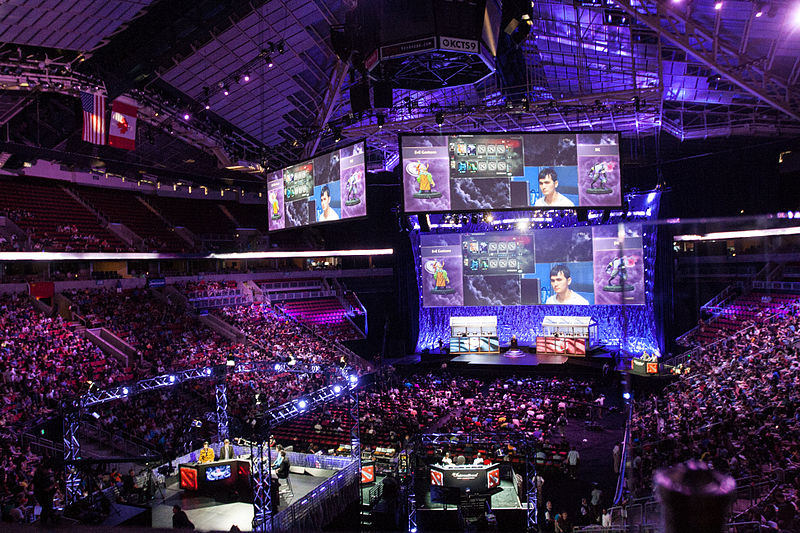
Esports, a form of competition using video games, has grown from a niche interest to a global phenomenon, with Europe standing out as a significant player in this dynamic industry. This article explores the development of esports in Europe, examining the prospects and challenges that shape its current landscape and future potential.
Historical Context of Esports in Europe
The early 2000s marked a significant turning point for European esports with the establishment of professional gaming leagues and organizations. One of the pioneers in this era was the Electronic Sports League (ESL), founded in 2000 in Germany. ESL began organizing regular online and offline tournaments, creating a structured environment for competitive gaming. The league’s success inspired the formation of other national and regional leagues across Europe, contributing to the standardization and professionalization of esports.
Two games that played pivotal roles in the growth of esports in Europe were “StarCraft” and “Counter-Strike.” “StarCraft,” a real-time strategy game developed by Blizzard Entertainment, gained immense popularity, particularly in countries like Germany and France. European players competed at the highest levels, challenging their counterparts from other regions, particularly South Korea, where the game had become a national phenomenon.
“Counter-Strike,” a first-person shooter game, became a cornerstone of European esports. The game’s competitive scene thrived in countries like Sweden, Denmark, and Poland, producing legendary teams and players. Also, the latest iteration of Counter-Strike is regularly covered on egw.news, which provides lots of latest news regarding this discipline. The success of European teams in international “Counter-Strike” tournaments helped establish Europe’s reputation as a powerhouse in the global esports arena.
As esports gained traction, Europe became a hub for major international tournaments. DreamHack, founded in Sweden in 1994, evolved from a small LAN party into one of the world’s largest digital festivals and esports events. DreamHack’s events, held in various European cities, attracted thousands of players and spectators, showcasing a wide range of games and fostering a sense of community among esports enthusiasts.
The Intel Extreme Masters (IEM), launched by ESL in 2007, further elevated Europe’s status in the esports world. IEM tournaments, held in iconic venues like Katowice’s Spodek Arena in Poland, drew massive audiences and featured top-tier competitions in games like “StarCraft II,” “Counter-Strike: Global Offensive,” and “League of Legends.” These events set new standards for production quality and fan engagement, solidifying Europe’s role as a premier esports destination.
Prospects of Esports in Europe
The esports industry in Europe has already demonstrated impressive revenue growth, driven by diverse streams such as sponsorships, advertising, media rights, ticket sales, and merchandise. This trend is expected to continue as more brands recognize the value of engaging with the highly dedicated esports audience. Major corporations, including both endemic and non-endemic brands, are increasingly investing in esports sponsorships, boosting the economic vitality of the industry.
The expansion of esports is also creating new job opportunities. From event management and marketing to coaching and analytics, the industry offers a wide range of career paths. This growth not only supports economic development but also encourages the professionalization of various roles within the esports ecosystem.
Europe is witnessing the construction and renovation of dedicated esports arenas, such as the HyperX Esports Arena in London and the V4 Future Sports Festival in Hungary. These state-of-the-art venues provide top-notch facilities for hosting tournaments, training sessions, and fan events. The availability of these dedicated spaces enhances the quality of esports events and contributes to the overall fan experience.
Investment in advanced broadcasting technology and virtual reality (VR) integration is expected to enhance the viewer experience, making esports more immersive and accessible. These technological innovations can help attract a broader audience and drive higher engagement levels.
Countries like Sweden, Denmark, and Germany have established esports academies that focus on nurturing young talent. These institutions provide structured training programs, combining gameplay skills with physical fitness and mental well-being education. Such comprehensive development programs ensure a steady pipeline of skilled players who can compete at the highest levels.
The growing popularity of esports among younger generations presents an opportunity to engage youth in a positive and structured environment. Young fans and players who are fond of MOBA games like to read dota 2 news online. Esports can teach valuable skills such as teamwork, strategic thinking, and problem-solving, contributing to the personal development of young individuals.
Several European universities now offer courses and degrees in esports management, game design, and related fields. Institutions like Staffordshire University in the UK and the University of Chichester have established dedicated esports programs, preparing students for various roles within the industry. This academic integration not only legitimizes esports as a career path but also ensures a well-educated workforce for the future.
Academic institutions are also contributing to esports research, exploring areas such as performance optimization, player health, and the social impact of gaming. This research can inform best practices and drive innovation within the industry.
Esports is receiving increasing attention from traditional media outlets, with major sports networks broadcasting esports events and providing coverage. This mainstream exposure helps normalize esports and introduces it to a wider audience, fostering greater cultural acceptance.
The appeal of esports transcends age, gender, and cultural boundaries. As the esports audience continues to diversify, the industry has the potential to unite people from various backgrounds, promoting inclusivity and cultural exchange.
Several European governments have recognized the potential of esports and are implementing supportive policies. For example, Germany has granted visas for professional esports players, recognizing their status as athletes. Such initiatives create a more favorable environment for the growth of esports and encourage international talent to compete in Europe.
Government grants and funding programs for esports organizations and events can help sustain growth, particularly for grassroots initiatives. These financial supports are crucial for fostering talent development and expanding the reach of esports.
Challenges Facing Esports in Europe
The regulatory environment for esports in Europe is complex and inconsistent, with varying laws and standards across different countries. This fragmentation can create barriers for international tournaments and cross-border operations, complicating issues such as player transfers, taxation, and intellectual property rights.
While some countries have started recognizing esports as a legitimate sport, others have yet to do so. This lack of uniform recognition can impact funding, visa applications for players, and overall support from governmental bodies.
There is a significant disparity in revenue distribution within the esports ecosystem. While top-tier teams and organizations often secure lucrative sponsorships and prize money, smaller teams and grassroots organizations struggle to maintain financial stability. This imbalance can hinder the overall growth and competitiveness of the industry.
Despite the growing popularity of esports, monetizing the audience effectively remains a challenge. Esports fans often consume content for free on platforms like Twitch and YouTube, making it difficult for organizations to generate consistent revenue from their viewership.
The high-pressure environment of professional esports can take a toll on players’ mental health. Issues such as burnout, stress, and anxiety are prevalent, and there is often a lack of adequate mental health support within the industry.
Prolonged hours of practice and competition can lead to physical health issues, including repetitive strain injuries (RSIs), poor posture, and sedentary lifestyle-related problems. Developing comprehensive health and wellness programs for esports athletes is crucial for their long-term well-being.
Women and non-binary individuals are significantly underrepresented in the esports industry, both as players and in professional roles. This gender disparity is due in part to a lack of visibility, support, and opportunities for female gamers.
The esports community has struggled with issues of harassment and discrimination, which can create a hostile environment for women and other marginalized groups. Addressing these issues through stricter policies, education, and enforcement is essential to creating an inclusive and welcoming community.
Maintaining competitive integrity is a persistent challenge in esports. Match-fixing, cheating, and the use of performance-enhancing substances can undermine the credibility of competitions. Robust anti-cheat systems, strict regulations, and vigilant enforcement are needed to safeguard the integrity of the sport.
The use of performance-enhancing drugs, such as stimulants to improve concentration and reaction times, is a growing concern in esports. Implementing anti-doping measures and educating players about the risks and consequences is vital for ensuring fair play.
Conclusion
The development of esports in Europe presents a landscape filled with immense opportunities and significant challenges. As the industry continues to evolve, collaboration between stakeholders, including government bodies, educational institutions, and private enterprises, will be key to addressing these challenges and harnessing the full potential of esports. With the right support and strategic initiatives, Europe can solidify its position as a global leader in the exciting and ever-expanding world of esports.




